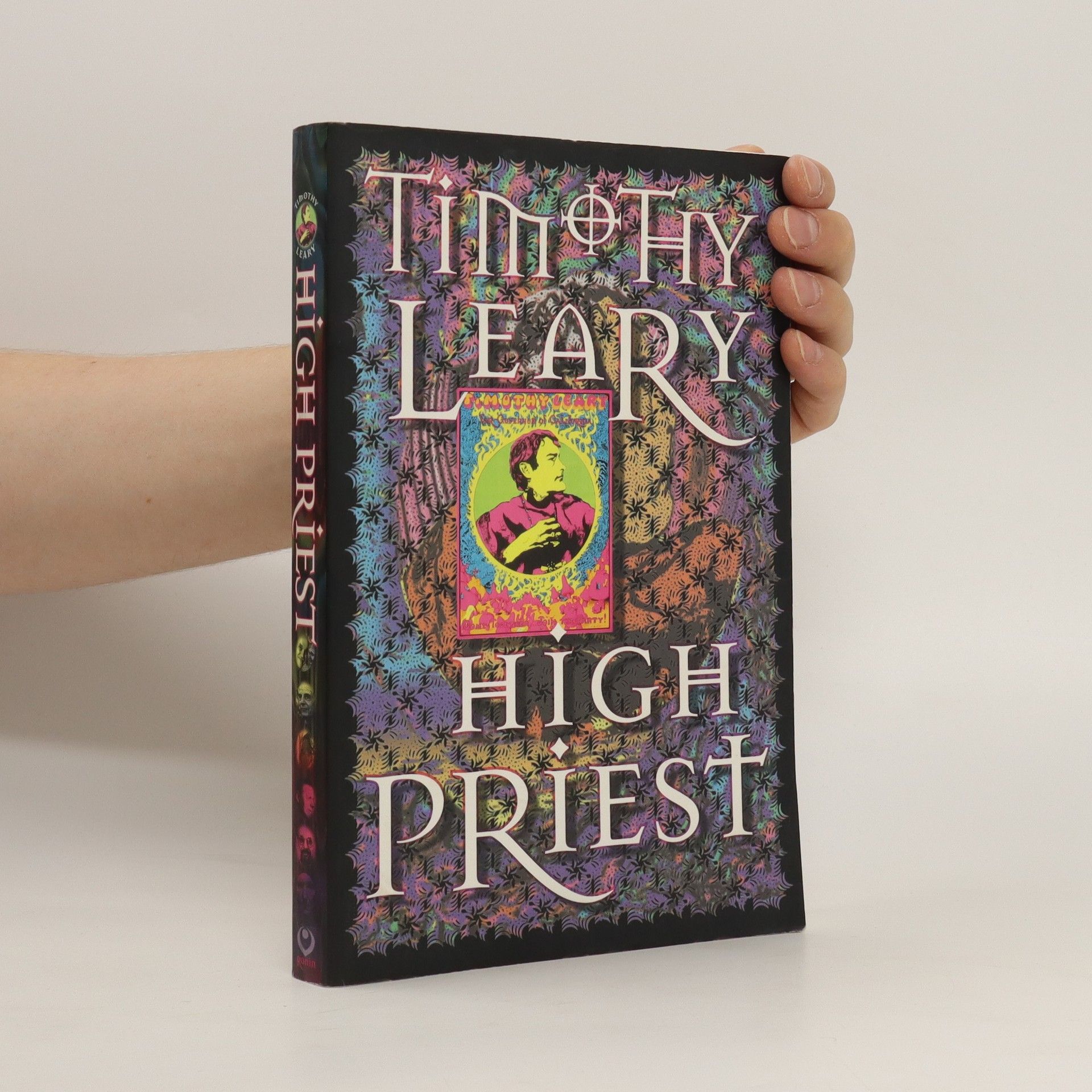The Psychedelic Reader
- 256pages
- 9 heures de lecture
Timothy Leary était un écrivain, psychologue et futurologue américain, célébré comme un pionnier dans la recherche et la promotion des drogues psychédéliques. Icône emblématique de la contre-culture des années 1960, il est surtout connu pour avoir défendu les bienfaits thérapeutiques et spirituels du LSD. Leary a inventé et popularisé le slogan "Turn on, tune in, drop out", résumant sa philosophie sur l'expansion de la conscience et le retrait de la société.







Timothy M. O'Leary is a firm believer that decisions about improvements, whether they be for a teacher or school, need to be based on fact, not fancy. In Classroom Vibe he uses data to demystify why some classrooms are primed for learning while others aren't and explains why strategies for change in schools often fail. In breaking down the atmosphere of the classroom as experienced by the students – the 'classroom vibe' – he gives teachers practical steps for improving theirs.The author argues that when teachers focus their improvement efforts on the 'vibe' in each of their classrooms and school leaders focus on supporting their teachers in this endeavour, everyone benefits. He provides a clear framework that highlights how the culture of a classroom can determine whether important teaching strategies will succeed or fail.
Back in print after 20 years, this text from the earliest days of psychedelia chronicles the experiences on 16 acid trips taken before LSD was illegal. The trip guides or "high priests" included Aldous Huxley, Ram Dass, Ralph Meltzner, Huston Smith and a junkie from New York City named Willy. It tells of the goings-on and freaking out at the Millbrook mansion in New York State that became the Mecca of psychedelia during the 1960s, and of the many luminaries who made their pilgrimage there to trip with Leary and his group. Chapters include an I Ching reading and a chronicle of what happened during those "spacewalks" of the mind.
As the fringe guru himself put it, "Mademoiselle Cancer moved in to share [his] body." In the days leading up to his death, Leary, never one to miss a party, transformed his impending demise into a vibrant vision of what dying can be. His final days were infused with optimism, courage, joy, and spirituality. Leary's last book presents a compelling argument for how we can make dying a high point of life. Irreverent, thought-provoking, and hilarious, it pioneers new approaches to death, encouraging us to take control of our own dying process. He shares his concept of "directed dying," allowing individuals to plan their deaths in a way that reflects their values. The book explores innovative possibilities for the wired generation, such as downloading consciousness onto the internet to extend our existence beyond physical life, and how technology may enhance the experience of dying. It also includes a comprehensive guide to death and dying resources, online tools, and further reading. Speaking to anyone curious about what lies beyond death, Leary's flamboyant final statement reveals revolutionary ways to embrace death while redefining how the living can perceive it.
Timothy Leary, Ph.D. has been a world-renowned psychologist, a defrocked Harvard professor, a relentless champion of brain change, a reputed drug guru, a stand-up philosopher, and a prisoner of the Nixon administration. He has been called 'the most dangerous man on the planet.' While in prison, at time in solitary confinement, he wrote the first version of this book. ("I must confess that at that time I was alienated, a bit daft and given to occasional fits of irritation. So color the first version of this book indigo—as in Jail House Blues.") Now revised and updated, Neuropolitique presents some of Dr. Leary's best ideas, his reflections on the past and his hope for the future.
Written while Leary was visiting India in 1965 and finished the following year, Psychedelic Prayers is an adaptation of Book 1 of the Tao Te Ching. With a new Introduction by Ralph Metzner, Leary's Harvard colleague, this book of poetry and meditations is being published in its first new edition in 25 years. Illustrations/photos.
Now repackaged with a striking new cover by renowned cyber-artist Brummbauer, this collection of 22 essays, speeches, and interviews, first published in 1968, presents psychedelic pioneer Timothy Leary at his most influential, provocative, and outrageous. Photos & illustrations.
Written in the psychedelic era, Turn On, Tune In, Drop Out is Timothy Leary at his best, beckoning with humor and irreverence, a vision of individual empowerment, personal responsibility, and spiritual awakening. Includes:o Start Your Own Religion o Education as an Addictive Process o Soul Session o Buddha as Drop-Out Mad Virgin of Psychedelia God's Secret Agent o Homage to Huxley o The Awe-Ful See-Er o The Molecular Revolution o MIT is TIM Backwards o Neurological Politics"Trickster is a major figure in American Indian folk Wisdom. Also in Sufi Tales … a certain type of "rascal"-with a grin and a wink (and wisdom beyond wisdom) … in the Zen tradition this is known as the School of Crazy Wisdom … Timothy Leary-in his own inimitable way-has become the twentieth century's grand master of crazy wisdom …" - Dr. Jeffrey Mishlove
Timothy Leary (1920-1997) was one of the most controversial figures of the 1960s, the man who urged a generation to turn on, tune in, and drop out. Now, nearly two years after his death, this manuscript has emerged comprising his best writings about sexuality. Beginning with an account of his first sexual encounter -- his own conception -- Leary takes readers on an exploration of the link between sexuality and the mind. Each short chapter contains either a traditional or novel approach to what Leary called "improving your navigational control over your pleasure cruises," including Hindu methods for stimulation via hypnogogic yantras, chemical aphrodisiacs, and neurolingual tricks for arousal.
The Psychedelic Experience, Created By The Prophetic Shaman-Professors Timothy Leary, Ralph Metzer And Richard Alpert, Is A Foundational Text That Serves As A Model And A Guide For All Subsequent Mind-Expanding Inquiries. In This Wholly Unique Book, The Authors Provide An Interpretation Of An Ancient Sacred Manuscript, The Tibetan Book Of The Dead, From A Psychedelic Perspective. The Psychedelic Experience Describes Their Discoveries In Broadening Spiritual Consciousness Through A Combination Of Tibetan Mediation Techniques And Psychotropic Substances.